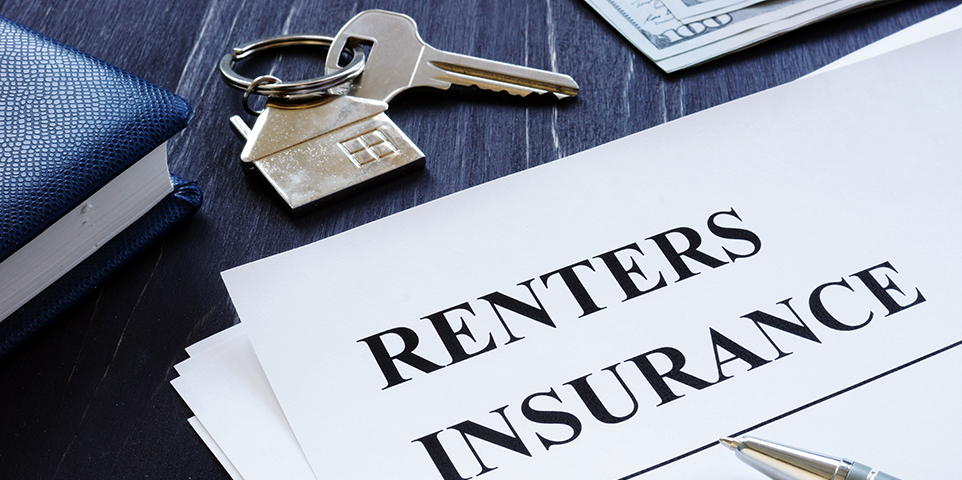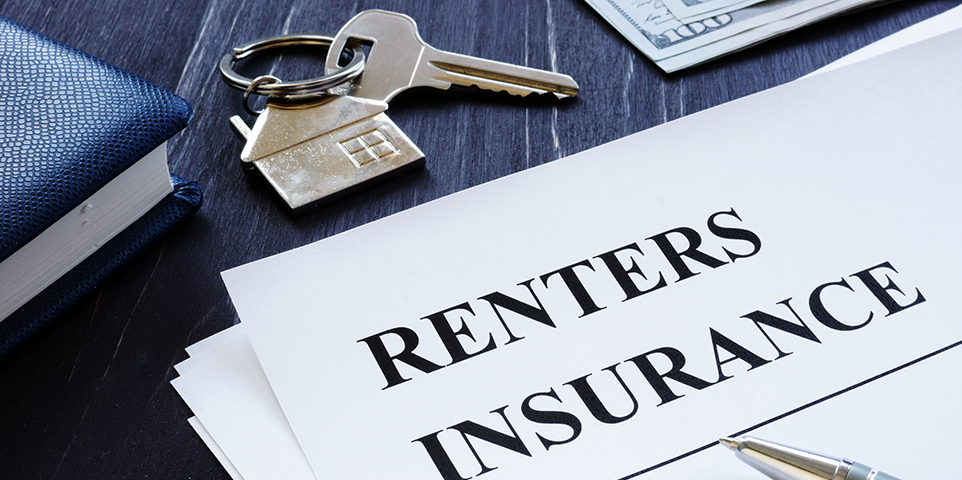
Renters insurance, also known as renters’ insurance, is an auto insurance product that offers some of the features of homeowners’ insurance without the need for a lien on the property, or payment of premiums, which tenants are sometimes hesitant to pay for when renting a home. Renter’s insurance is generally less expensive than homeowner’s insurance because it does not cover structures included in the house. However, renters insurance does provide some protection for the contents of a rented dwelling. In addition, renters may be able to defer payment of premiums on a structure and purchase that structure later, if they should become unable to remain in the dwelling.
Renters insurance covers losses from theft, vandalism and accidental damage to a rented property. The policy will also cover legal obligations, such as those related to eviction proceedings. Typical policy limits include liability for personal bodily injury, property damage, theft, invasion by unauthorized persons, and advertising or promoting a product that causes harm to others. Some policies will also cover losses incurred at rental facilities, such as loss of business or income due to a facility’s failure.
It is important to note that, in many cases, policies will only provide coverage for specific incidents. For example, if a guest slips and falls on the property, and the policy does nothing to help the owner to replace the carpet, the guest is stuck with the cost of the medical expenses, which may exceed the value of the carpet. Renters insurance will typically provide coverage to guests for legal liability for injuries or property damage resulting from slips and falls, but will usually exclude property damage caused by tenants. Even with the exclusion of property damage, renters’ insurance will typically only provide coverage for bodily injury. It will typically not cover wrongful death or dismemberment.
When comparing the different types of coverage, it is important to understand the difference between renters insurance policies that will cover your personal belongings and those that will not. Renter’s insurance policies that will not cover your belongings will be limited to reimbursement for the cost of replacement. In contrast, renter’s insurance that will cover your belongings typically provides coverage for loss, theft, or damage while renting the premises. If you own a valuable item that was stolen, your renter’s insurance will cover the full value of the item so that you do not have to worry about renting another home to replace the stolen item.
What Does Renter’s Insurance Covers?
A renters insurance policy covers your personal items, but won’t usually cover other things that belong to others. Apartment and rental property owners have all rights to inspect your apartment or unit. They can check your apartment or unit to make sure that everything is in good condition and working order. If your appliances or electronics are damaged or stolen, the policy covers the cost of replacing them. However, if a guest or renter steal any of your stuff, the policy does not cover you because the stuff was not your personal property.
The main reason that people rent is to live paycheck to paycheck. Because of this, it is common for renters to encounter unexpected expenses such as medical bills, damage to their apartment, and other types of incidents that require them to spend a large amount of money. When these expenses occur, the first thing most people do is to ask their landlord to cover the cost of damages and repairs. However, if the person doesn’t own the property, renting an apartment insurance plan will protect them from paying for their own hotel bills, replacing their personal property, and even replacing their car if they get into an accident.
Renters insurance, also known as renters’ insurance, is basically an insurance policy which offers all the advantages of homeowners’ insurance plus much more, but doesn’t include coverage for your personal possessions, or the structure, except for minor aesthetic changes which a tenant typically makes to the structure itself. It is required by law in many states and is highly recommended. Even if you live in one of those states, however, it’s wise to have renters’ insurance to cover any unforeseen damage, loss, or theft that may occur. You should get quotes from several different companies and/or agents to determine just what kind of coverage you’ll be getting for your money. If you decide to combine your home contents insurance with your renters’ policy, you’ll be making a big difference in terms of savings. Here are some things you should know about renters’ insurance:
Personal Property Coverage
The first type of coverage you should be familiar with is personal property coverage. This may include items such as clothing, jewelry, appliances, electronics, antiques, and other personal property. Some renters insurance policies offer additional personal property coverage, which can come in handy if you’ve ever rented a house that was damaged somehow. Personal property coverage may also help cover the contents of a rental unit, which may help prevent you from being sued if somebody gets injured inside the unit while it’s not under your possession. Contents coverage may also help pay for legal fees, court costs, and other expenses that occur as a result of an accident inside your rental unit.
Contents Insurance
Even if you own the building you live in and only rent it out, you should still have renters insurance to protect the contents of your rental unit, should anything happen to it. This helps you prevent from being sued and helps to save you from financial hardship. A standard renters insurance policy will contain contents coverage that ranges in price and coverage depending on the policy itself and what kind of policy it is. If you have expensive items or something happens to them and they get lost or damaged, it could be too much for your pocket to cover, so contents coverage would kick in to help you out.
Accidental Damage and Theft
Just as with personal property coverage, the amount of coverage offered by your renter’s insurance also depends on what kind of policy it is. If you rent your place as a short-term rental, your renter’s insurance probably won’t cover unexpected events like theft. However, if you live in an apartment building and are renting out your place as your primary residence, your insurance probably will cover accidental damage and theft. Be sure to ask your provider what exactly your coverage includes though, as some policies will only cover accidental damage and/or theft and not both.
Legal Cover
If you need renters insurance cover for legal liability, this is something that you can get as a separate rider to your personal contents insurance policy. In fact, most policies do not cover anything beyond that. You can, however, add rider riders that will include such things as liability protection, legal expense coverage and even cover for your tenants’ personal injury claims. Just be sure to talk these things over with your provider first.
Condo or Apartment Rentals
Depending on the location of your apartment or condo unit, your condo or apartment rental company will likely offer its own insurance policy to cover your personal possessions. Make sure that you ask them how much it covers though, because some policies may be cheaper than others. In addition to covering your stuff, they will also probably give you a copy of their policy and a list of the items that do not qualify as belonging to you on their policy and will need renters insurance to cover those. In some cases, they may even have their own personal property insurance coverage that will protect your belongings when you are out of the condo unit. Just be sure to ask them about this. Some insurance companies will include your personal belongings in the rental insurance cost.
